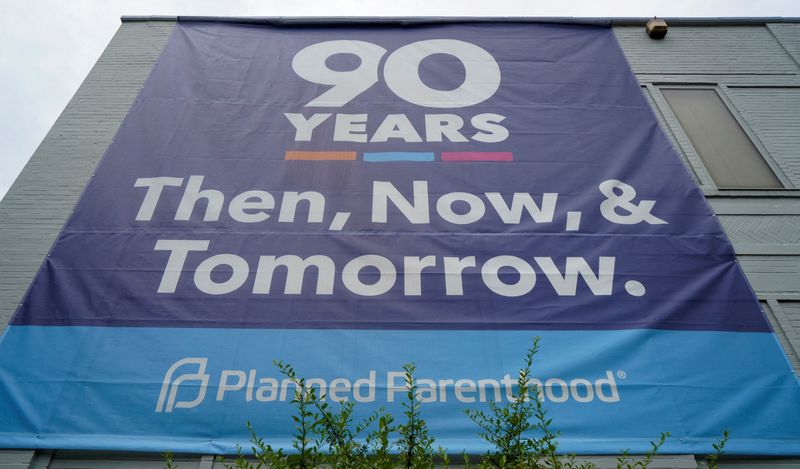By Brendan Pierson
(Reuters) - Planned Parenthood on Monday asked a state court judge in Utah to block a law set to take effect next month that would effectively ban abortion clinics from operating in the state.
Planned Parenthood said the law, which would eliminate the licensing process for abortion clinics and thus effectively make it impossible to get an abortion anywhere but in a hospital, violated the state constitution's rights to privacy and bodily integrity, in a lawsuit filed in the Third Judicial District Court in Salt Lake City.
The case is before Judge Andrew Stone, who last year issued a preliminary order preventing the state from enforcing an earlier abortion ban while he hears a legal challenge by Planned Parenthood. The judge said at a hearing in that separate case that it was prudent to pause a "seismic change in women's health treatment" until the lawsuit, which remains pending, is finally decided.
Planned Parenthood argued that Stone should block the newer law for the same reason, saying it would ban 95% of abortions in the state if allowed to take effect on May 3.
"As promised, Planned Parenthood Association of Utah is fighting back and doing everything in our power to make sure that Utahns can get the care they need to stay healthy," Sarah Stoez, interim president and CEO of Planned Parenthood Association of Utah, said in a statement.
The office of Utah Governor Spencer Cox, a Republican, who signed the law last month, declined to comment.
The law blocked last year was a so-called trigger ban set to take effect in the event that the U.S. Supreme Court overturned the constitutional right to abortion established in its landmark 1973 Roe v. Wade ruling, which it did last June.
The law banned nearly all abortions, with exceptions for risk of death or permanent injury to the mother and for severe fetal abnormalities. It also included an exception in cases of rape or incest, but only if reported to the police.

For now, abortion remains legal up to 18 weeks of pregnancy in Utah.
Twelve of the 50 U.S. states now ban abortion outright while many others prohibit it after a certain length of pregnancy, according to the Guttmacher Institute, a research organization that supports abortion rights.